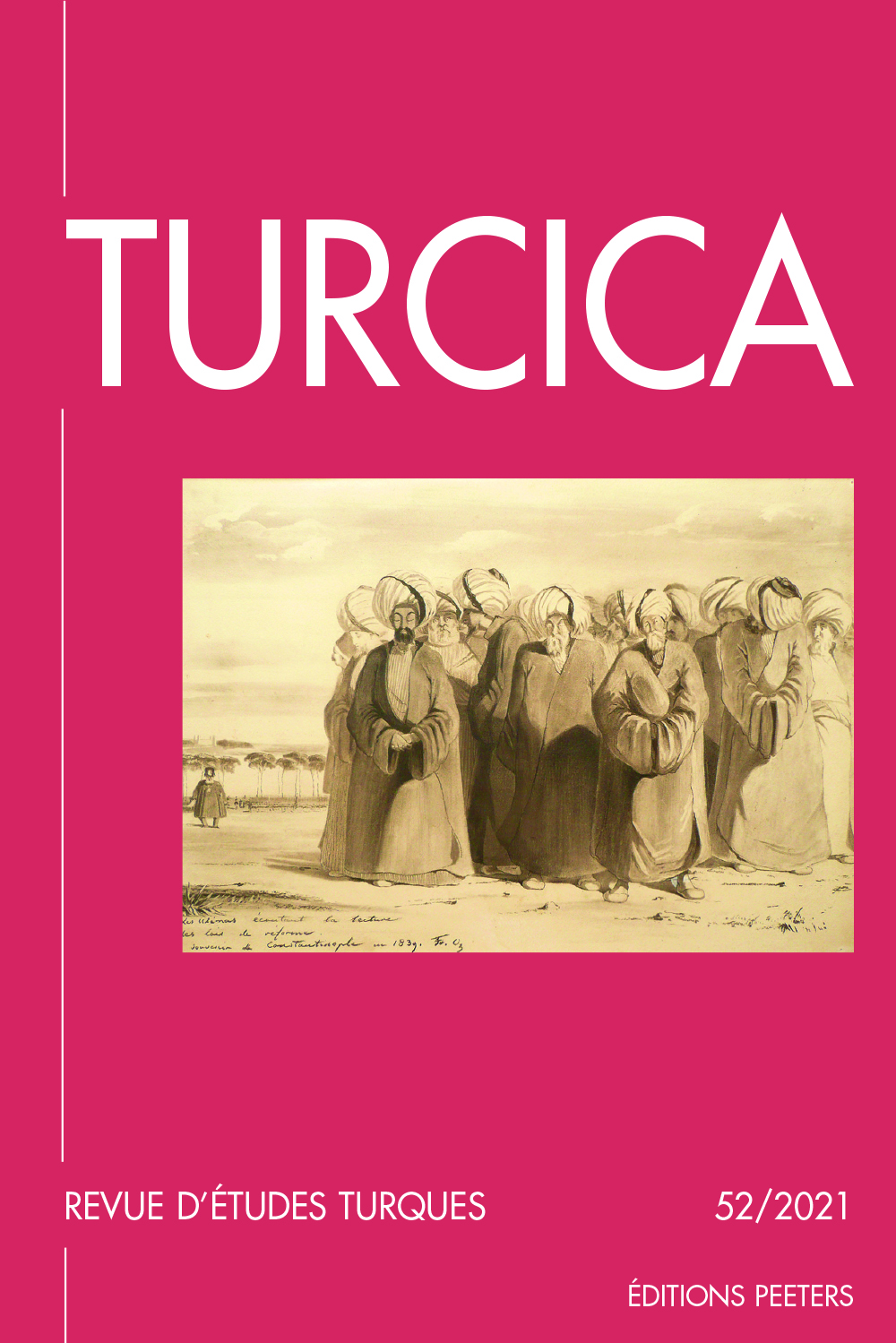 previous article in this issue previous article in this issue | next article in this issue  |

Preview first page |
Document Details : Title: L'autobiographie par l'État chez les derniers Ottomans Author(s): BOUQUET, Olivier Journal: Turcica Volume: 38 Date: 2006 Pages: 251-279 DOI: 10.2143/TURC.38.0.2021276 Abstract : Créée en 1879, au début du règne d’Abdülhamid II, la Commission des Sicill-i ahval est chargée d’une opération biographique inédite dans l’histoire de l’Empire ottoman: le recueil des récits de carrière de l’ensemble des employés de l’administration civile. Si cette nouvelle institution ne peut s’appuyer sur aucune tradition de récit autobiographique solidement établie pour mener cette vaste entreprise, elle semble puiser à un genre pour le coup ottoman (la biographie), en reprenant à son compte, sous l’effet de la centralité culturelle dynastique et du poids de l’État, l’intérêt accordé aux vies de dignitaires. De cette première hypothèse explorée dans l’article, en découle une seconde: un type d’écrit, encouragé au XVIIIe siècle par le pouvoir impérial et initié au XIXe siècle par une administration en réforme, – ce que j’appelle l’autobiographie par l’État – aurait contribué à l’élargissement du discours biographique à un plus grand nombre, participant ainsi à l’émergence d’une nouvelle expression littéraire: l’autobiographie du sujet, achevée comme genre littéraire par les Turcs, dans la seconde moitié du XXe siècle. Created in 1879 at the beginning of Abdülhamid II’s reign, the Sicill-i ahval Commission was entrusted to record the employees curricula of the whole civil administration. Interestingly enough, the Imperial State had never tempted such a large operation in the previous centuries. Besides, the Commission did not make use of any autobiographical sources, as the Ottomans had never really explored them, even in the 19th century, although, such an innovative biographical enterprise most probably found a profitable inspiration in classical compendia dedicated to dignitaries. Indeed this genre had been exploited to a great extent by major bureaucrats and intellectuals involved in the glorification of the dynasty and the ideological shaping of the Imperial State. Based on the exploration of this hypothesis, our study leads us to another one: evaluating the extent to which a type of narrative encouraged by the Imperial Power in the 18th century and reorganized by the 19th century Tanzimat administration – that I may call autobiography by the State – very probably contributed to enlarge autobiographical practices. It is moreover arguable that it presumably exercised an influence on the emergence of new literary expression of the self as explored by 20th century Turkish writers. |
 |


